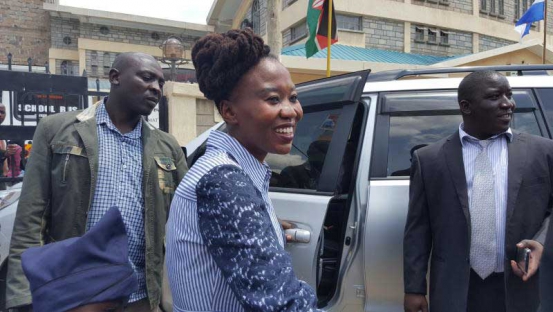×
The Standard e-Paper
Join Thousands Daily

IEBC Commissioner Roselyne Akombe acknowledges greetings from fellow worshippers at the Umoja 1 SDA Church.
A flurry of nocturnal meetings involving different stakeholders have been taking place since Friday in a bid to beat a possible constitutional crisis in the event the October 17 repeat presidential election is rescheduled.